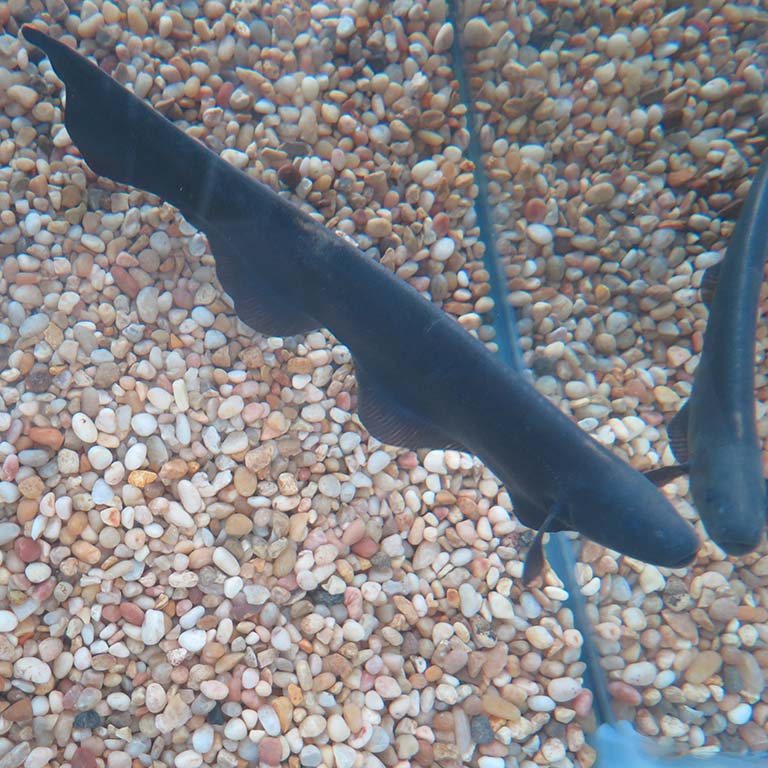Recent findings about the South American ghost knifefish by Associate Professor Troy Smith, Lecturer Adam Smith, and colleagues could have implications for the genetic basis of epilepsy and certain inherited muscle diseases.
The ghost knifefish (Apteronotidae) is an electric fish—that is, it has an electric organ that can generate electric fields. It is also electroreceptive; it can detect electric fields. An electric fish uses its electric organ—a specialized structure usually composed of cells derived from tail muscles—to produce bioelectric fields for communication, navigation, and defense.
The electric organ of the ghost knifefishes, however, is made of specialized spinal nerves rather than muscle-derived cells. These nerve cells fire spontaneously and are the fastest-firing cells known in the nervous system of any animal—they continuously produce electrical signals at frequencies of over 1000 times each second. Adam Smith, Troy Smith, and their fellow researchers have discovered that these specialized nerve cells express a protein that is normally found only in muscles in other animals, and that this protein has evolved novel mutations that allow the electric organ to fire so fast.
Read Science magazine's highlight about the research team's findings. And, of course, to learn even more, check out the team's article in PLOS Biology.

 The College of Arts
The College of Arts